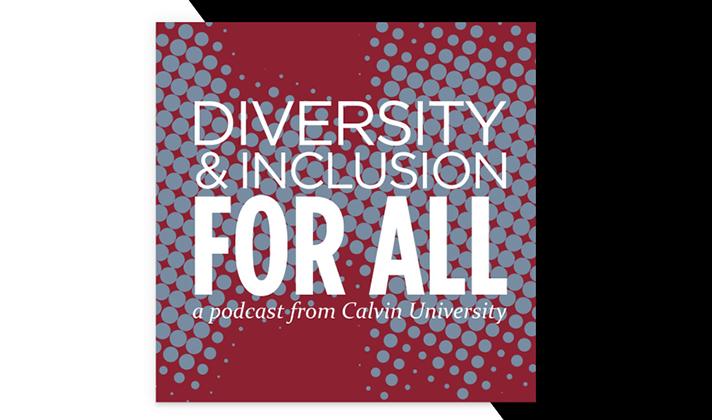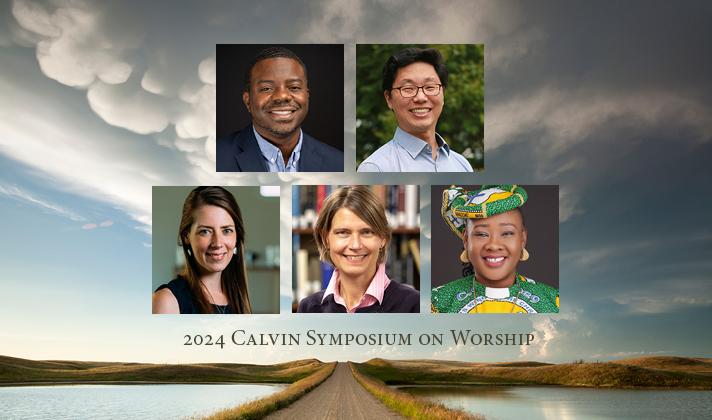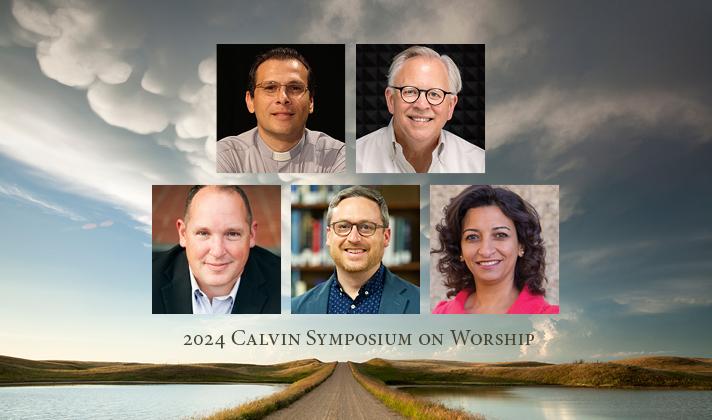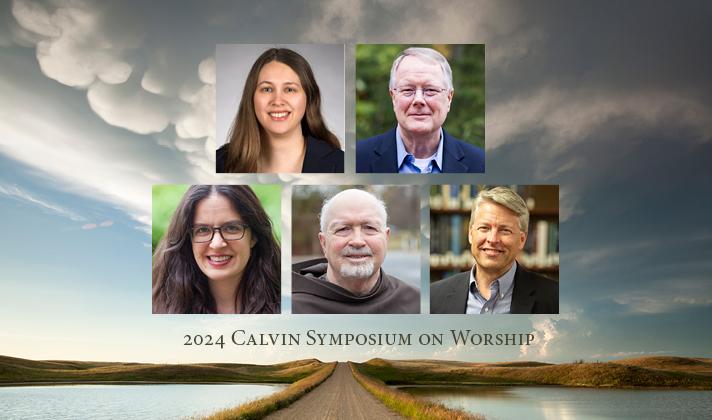A worship service from the 2021 online Calvin Symposium on Worship.
Institution Name: Fuller Theological Seminary
Participants: Mark Labberton, preaching; Ed Willmington, Julie Tai
Deaf and CODA Community Introduction: Gabriella Bontrager, Linda Bontrager, and Bernita Bontrager
Song: "Your Mercies": January Lim, Joel Yoshonis, Ivan Wong, Olamide Kolawole, Julie Tai, and Rosa Ramirez
Litanies of In-Dwelling: January Lim, Ivan Wong, Olamide Kolawole, Julie Tai, and Rosa Ramirez
Song: "Holy Spirit Come": January Lim, Joel Yoshonis, Ivan Wong, Olamide Kolawole, Julie Tai, and Rosa Ramirez
Shadow Painting: Eric Tai
Song: "This Is My Father's World" (Beauty Birthed from Strife): Julie Tai, Eleanor Baylon, Joshua Hill, Eben Drost, and Aaron Dorsey
"Romans 8 + 밤이나 낮이나 (Sunrise Or Sunset)": Linda Bontrager, Olamide Kolawole, and Noah Branson
Sermon: President Mark Labberton, Fuller Seminary
Prayers of Confession & Assurance: Todd Johnson
Song: "Purge Me": January Lim, Olamide Kolawole, Connor Hedge, Ivan Wong, Joel Yoshonis, and Julie Tai
Song: "We Fall Down": Rosa Ramirez, Julie Tai, January Lim, Angie Paek, Eben Drost, Eleanor Baylon, Joshua Hill, Barnabas Lin, September Penn, Megan Moody, Joel Yoshonis, Olamide Kolawole, and Ivan Wong
Song: "Revelation 19 (Hallelujah, Salvation, and Glory)": Rosa Ramirez, Julie Tai, January Lim, Angie Paek, Eben Drost, Eleanor Baylon, Joshua Hill, Barnabas Lin, September Penn, Megan Moody, Joel Yoshonis, Olamide Kolawole, Aaron Dorsey, Anastasia Fuentes, and Ivan Wong
Location: Pasadena, California, USA
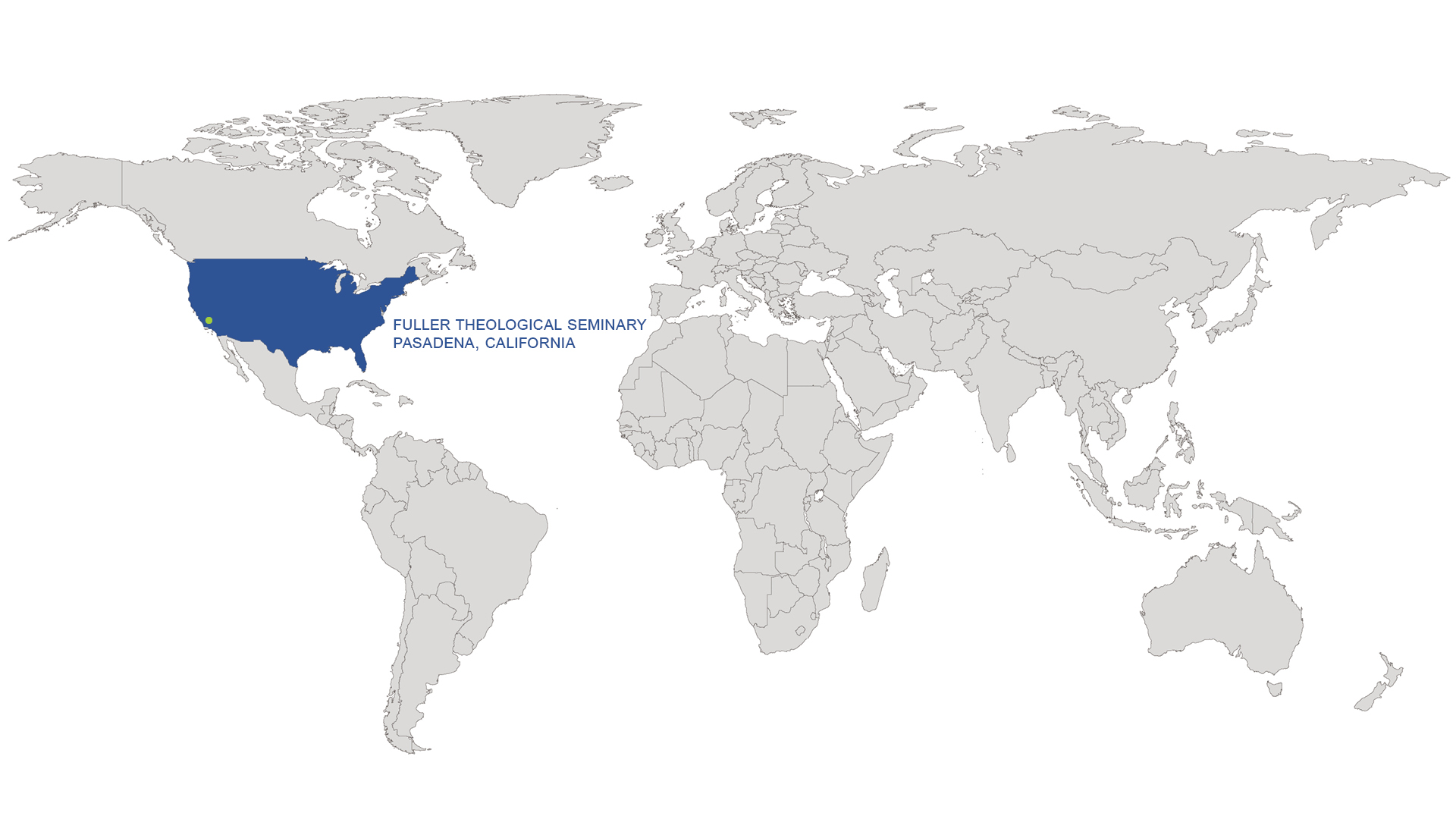
Order of Worship and Copyrights:
Deaf and CODA Community Introduction
Song: "Your Mercies"
Text and Music: Edwin M. Willmington; produced by Ivan Wong; © 2021 Shepherd’s Staff Worship Music.
Used by permission. All Rights Reserved.
Litanies of In-Dwelling
Written by Julie Tai; Translation by Helen Lim and Rosa Ramirez
Song: "Holy Spirit Come"
Text and Music: Rita Springer © 2007 Koch Records
Used by permission. CCLI #400063.
Shadow Painting
Artwork by Eric Tai
Song: "This Is My Father's World" (Beauty Birthed from Strife)
Text: Maltbie D. Babcock
Music: Franklin L. Sheppard; arr. Julie Tai, Eben Drost, and Edwin M. Willmington © 2017 Julie Kang and Eben Drost
Used by permission.
Song: "Romans 8 + 밤이나 낮이나 (Sunrise Or Sunset)"
Text: Romans 8; tr. Linda Bontrager
Music: Rebecca Hwang © 2018 YJ Music; Transcribed and re-arranged by YJ Jeong, Nashville, TN
Used by permission.
Sermon
Prayers of Confession & Assurance
Written by Todd Johnson
Song: "Purge Me"
Text and Music: Allison Hurst and Orlando Palmer © 2013 Urban Doxology
Used by permission. CCLI #400063.
Song: "We Fall Down"
Text and Music: Kyle Matthews and Donnie McClurkin; tr. Rosa Ramirez and Jaewoo Kim © 1998 BMG Songs, Inc.
Used by permission.
Revelation 19 (Hallelujah, Salvation, and Glory)
Text and Music: Jeffrey A. LaValley; arr. Mark Hayes © 1985 and this arr. © 2019 by Peermusic III, Ltd., Savgos Music, Inc., and Candied Jamm Music; tr. Rosa Ramirez and January Lim
Used by permission. CCLI #400063.
"Sermon Transcript"
You will live. That's Paul's affirmation of the great hope that's ours in Christ, because there is therefore now no condemnation in Christ and because of the gift of the Spirit that has taken up residence in our lives, we can be confident of this: we will live. If the Spirit is in us, life is in us. And if the Spirit is not in us, then we do not have life.
Paul is aware that it's this great hope of the Spirit's presence that gives us an assurance that life has the final word and not death. It will be as faithful as God's own promises and actions in Christ by the Holy Spirit that we can walk in the confidence of being alive. This great hope that Paul's affirming is one which is so profound and shapes so much about his understanding of the journey that we're on right now. Oh, he'll go on to make it clear that we live in a world where there's still plenty of groaning. There's lots of things that don't always signal life, but death. And yet, he wants us to walk in the confidence that we are alive and will be alive.
He is aware that there is this tension, because we still live in the flesh. That is, we are still people who are not fulfilling everything that we will one day be, because we are still existing inside our mortal bodies, as he says. And yet flesh is not so much about our physical existence, really; it's much more about our moral existence, our spiritual existence, our awareness that we are more bent in on ourselves than bent in toward God. That we're more interested in the way that we think about the world than the way that God thinks or wants us to respond to the world or to God himself. See, it's this that Paul wants us to overcome, to display a vivid reality that we are alive; free from the death of the flesh and set free to live in the Spirit.
Now, often when we talk about this text, I think our minds, particularly in some circles, tend to go toward the change of an inner life; surely that's part of it. But I think for today, I'd like us to focus in a different direction. What are the public evidences that we are actually alive by the Spirit in Christ? What is it that bears witness to the fact that we have let our fleshliness go and that we are leaning into and finding life in the Spirit?
So often when we think only of our own interior life, we can even find it a cul-de-sac where we never get outside that small space. It's important that we think about that, but let's move beyond it today, as we reflect a bit about the social or public implications of being alive in the Spirit.
There's many different ways that we could illustrate that. I want to just choose a few. For example, often just in interpersonal relationships, we struggle with attitudes—attitudes that have been part of what we've been shaped by as a child growing up. The family that we've been a part of, the culture that we've been in, the circumstances that we've faced, all of these things can be evidences of a need to overcome those habits and practices that often make relationships harder, that are not the seedbed of hope and of life, but our small, little, petty preoccupations that are part of the way that we've been living and part of the environment that has shaped us.
If we're going to be alive in the Spirit, then we need to take those things seriously and find ways that, by the Spirit and power of God, we can move beyond our own petty preoccupations. We're called to a new life in Christ. Let's let go of the flesh of our own resistance to actually becoming the kind of loving people that God has created us to be.
Let's think about it in a couple of other ways. For example, one of the features of growing up in the United States is the experience of being shaped by American individualism. It's notorious around the world that individualism is one of American's most characteristic hallmarks. And yet, while there's a place, of course, for affirming the value and dignity of each person, and that that's both biblically sustained, it's theologically important, it's part of realizing that each of us have been knit together in our mother's womb, that we are to be given honor and dignity— in the United States, that is put on steroids. And it begins to show itself in ways that are really far beyond simply honor and dignity.
It can easily move into a kind of ideology, where the priority of self trumps almost anything else. The priority of being able to have life in the way that we want it to be is the primary goal. And anything that might tyrannize that, or challenge it, or undo it, or stop it, well, the culture of individualism says, "No, I alone should be able to control my life and have the destiny that I decide upon."
Now, that ideology, frankly, can move to an even more extreme, which is almost an idolatry: the idolatry of self—the world is about me, me, me in every given direction that I might look in. It's a story of our own self-preoccupation. It's an inability to move beyond ourselves or to let anyone or anything even be a rival.
Brothers and sisters in Christ, those of us who are North Americans carry the potential, not just of ideology, but of an idolatry. It is a sign of life in the flesh. It is not a sign of life in the Spirit. We have to face that reality. We have to speak the power and mercy of God to forgive us, to change us, to release us from the idolatry of ourselves in order to actually see our neighbor, see our friends and even our enemies in ways that are no longer put simply through the lens of my own self-interest. That is American individualism. And it's a sign, as much as not, of a life committed to the flesh, more than simply a life honoring and reflecting the dignity of being made in God's image.
That is a crisis for the church. It makes it impossible for the church often to get beyond itself. And yet, the whole purpose of the gospel is to be given life beyond our own selves. May God help us to find life in the Spirit by putting to death a kind of individualism that can subvert our relationships, that can blind us to the importance and value of our neighbor, giving ourselves first place rather than God, and letting that allow us to see and perceive and engage our neighbors, our friends, and even our enemies in a different way.
I think of people who have been exemplars of this to me. For example, I have a friend who grew up in the Muslim world. His family was Christian, but the surrounding people in their neighborhood were Muslim. And in that context, there were great relationships, wonderful relationships. And yet over time, a change of politics, a change of social reality often subverted that set of initially very positive friendships, and things became a lot rougher, a lot harder, a lot more grueling, a lot more persecuted.
And this friend ended up being not only persecuted in an ordinary, daily sense by just the way that he was harassed, but ultimately he was put in jail because of his Christian faith. By the grace of God, he had died enough to himself to be able to see and love his Muslim brothers and sisters, despite all of this. Eventually, he came to the United States to study at Fuller Seminary, and that's where I had met him.
Now it was at about the same time that our highly esteemed former president Dr. Richard Mouw had hosted a group of Muslim scholars on campus in Pasadena, and he had welcomed them, and he had turned over his outer offices for them to pray in five times a day. When I heard this story, I thought how great it was that this had happened. But I'll admit that voyeuristically, I was a bit curious about what certain people in the Fuller community, what certain donors might wonder about this.
I happened to run into this friend that I was just telling you about who’d grown up in the Muslim world. And I said, "Did you know that this had happened?" He said, "No." I said, "Well, furthermore, did you know that he had given opportunity for the visiting scholars to pray in his outer offices? What do you think about that?"
And he said without pausing, “Well, it’s not a big deal to give them an office. We’re supposed to give them our lives.”
"Right," I thought, "That's exactly what I'm thinking. That's just exactly what I was thinking. It's about giving them our lives—or not." See, it has to do with what it is that we're prepared to be, or to say, or how we're willing to act, to really love in a new way. Not putting ourselves in the center, not putting our tribe in the center, but putting God in the center, a God of love to Muslims and to Christians alike.
Or I think of another friend who was really the victim of brutal hatred and violence against him in Africa, where he is from and where he lives. He was considered by the president of (his) country one of its greatest enemies. And when it looked as though he was about to be killed by the state, my friend fled temporarily.
After a period of time, he came back. And the first place that he went to was not the safety of his home. He didn't come in under dark of night. He didn't slink in. He came in on a plane. He drove straight to the house of the person who really was the number one public enemy of the state, who was being held under house arrest. He had come to pray with his Christian brother who was being held in this way. And when the police said he couldn't go in and worship or pray with his friend, my friend said, "Well, then how about if I lead you in worship? Let's pray together."
Now this bold act was not to me an instinctive one. Knowing his life was truly under threat, I'm not sure the first place I would go is maybe one of the most spotlighted places of government interest. And to go there as a Christian, to pray with the person that the state had decided was the enemy, and then being resistant in doing that, to say to those who represented the enemy of the state, he said, "Let's pray."
How can you live that way? Because he's full of the Spirit. Because he's living life in the Spirit. He's free from the places where his life could have been bound in a smallness, in an inattention, in a self-protection that could have easily determined the outcome of that story. I'm grateful my friend's alive. I'm grateful the man who was held hostage was alive. And I'm also grateful that in a country of great need, there are people so alive in the Spirit.
The same thing is true, of course, in the United States. There are people here who are great evidences of this: communities of faith, congregations that in this time of life and death during COVID, they're showing all kinds of signs of the reality of being alive in the Spirit.
I think of one friend who was a student when I first met her here at Fuller. She was a person who had been from the Midwest. She had come to study and do an MDiv at Fuller. She'd also studied and worked hard as an employee at Fuller, and she had taken up some very, very significant roles of leadership. She was young. She was passionate. She was committed. She was bright. She was dedicated. She was African American. And she suffered.
She suffered even in a theological seminary that represents this gospel of life. She brought issues to everyone's attention. She shared in doing so with other students and other staff. She told the story. She represented the story. She argued for change. And she did so faithfully, resiliently. But ultimately, after several years, it was just a burnout. She left. She'd finished her degrees. She resigned from her position, and she went to just heal. She did that. She gave herself to all the things that she needed to do in order to be made well.
And then all of a sudden, one day in a Southern state, she ended up watching, as we all did, the murder of George Floyd—a murder that took place (to) a man who lived in her hometown, not far from her own family home, and she immediately went there. She went there to serve, to care, to love, to safeguard, to tend. She's become the curator of the collection of memories, and of witnesses, and of honoring that's been brought together all around the site where George Floyd was killed.
How can she do this? How can she lean daily into such an ongoing, painful story, unresolved in a nation that still has a history of racism? She can do it because she's alive in the Spirit. She can do it because Jesus Christ calls her to be evidence of new life.
See, racism is its own vestige of fleshliness. White superiority and supremacy is a sign of fleshliness. It’s not a sign of life in the Spirit. The kind of ways in which the white church in America has often been so intertwined with a long and protracted multicentury history of racism is a sign that the church in this context is unwilling, or unable, or both, to actually lay down this kind of fleshly perspective and attitude and actions and institutional structures and to remake ourselves in order to show that we are alive in Christ—not just alive by being white or male, not just alive because of our economic or educational privilege. No, we are alive not because of those things, but because of Jesus Christ, whose Spirit gives us life.
Paul says at the end of the text, "You will live." He's confident of it. I want to be confident in claiming it for all of us who are watching this service as well. We will live, but we have to choose to live. Will we give up the death that can so easily cling to us, that destroys and upsets and distorts still the reality of this new life that we're meant to display? Or will we allow it to die—in fact, put it to death—in order that we might live and that others might come to life as well?

